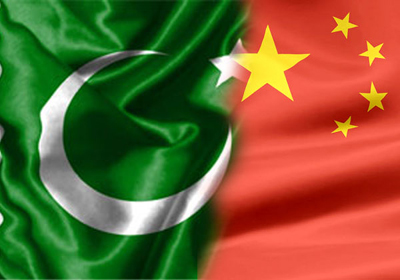 Islamabad: Shi Lan, an eminent Chinese scholar and deputy director, Institute of Central Asian Studies (ICAS), Urumqi, has said that though terrorism was a common foe for everyone, different countries have their own definitions of terrorism and their own policies of dealing with it.
Islamabad: Shi Lan, an eminent Chinese scholar and deputy director, Institute of Central Asian Studies (ICAS), Urumqi, has said that though terrorism was a common foe for everyone, different countries have their own definitions of terrorism and their own policies of dealing with it.
She was discussing the different aspects of regional cooperation against terrorism in a three-day international conference on ‘Pak-China Relations: Bilateral and Beyond Bilateral exchanges’, which resumed at the Institute of Policy Studies, Islamabad, on April 28, 2014.
She was of the view that the US and its allies have spent astronomical amounts fighting the war against terrorism, however, even more than one decade after the US launched its ‘war on terror’, terrorism was far from dead. On the contrary, it was still taking the lives of innocent people from Asia to Africa and from Europe to America.
So there was something wrong with the global anti-terrorism policy, and it has to be sorted out what can be done to fix that, she remarked.
One obvious deficiency, according to her, was the lack of global consensus on the fight against terrorism. She also criticized the double standards of some major powers in defining and dealing with terrorism.
The conference is being organized by the Institute in collaboration with three Chinese institutions: Institute of South Asian Studies (ISAS), Chengdu, Institute of South Asian Studies (ISAS), Kunming, and Institute of Central Asian Studies (ICAS), Urumqi, along with two Pakistani universities: University of Peshawar and University of Management & Technology (UMT), Lahore.
In another presentation, Dr. Xie Daigang, executive director, Center for South Asia West, China, emphasized on the importance of Pak-China economic corridor for both countries as it will connect the West China with Pakistan through road, railway, oil & gas pipeline, and optical fiber.
He said that this corridor was not merely a passage; instead it will provide development opportunities in the areas of infrastructure, energy, agriculture, water conservancy, etc.
He said that Pak-China economic corridor was an important part of China’s national strategy for near future. He also underlined various challenges the idea was hindered with, including the harsh geologic environment and insufficient infrastructure in Pakistan, but suggested the up gradation of Karakoram Highway and creation of livelihood projects along the corridor as the potential solutions to the problem.
Xu Haomiao, a research associate at the XJASS, Umruqi, presented a detailed analysis of the trade situation between Xinjiang and Pakistan in recent years. He pointed that there was a huge imbalance in trade where Xinjiang has a trade surplus. He further pointed that a significant decline can also be observed in the trade since 2012 due to various reasons.
Referring to the solution of the problem, Xu suggested that Xinjiang should make full use of preferential policies of state to expand economic cooperation with Pakistan. He also pointed that the custom clearance procedures should be eased and the efficiency of Pak-China Highway should also be enhanced.
Dr. Zhihui Song, senior researcher, ISAS, Changdu threw light on the possibility of Sino-Pak cooperation in Afghanistan.
He said that Afghanistan faces many threats after the withdrawal of NATO forces in the areas of domestic security and restoring its economy, especially due to the shortage of aid from international community.
He stressed that Pakistan and China must collaborate and work closer with Afghanistan in order to maintain peace and stability in the region.
Earlier, the keynote speaker, Ambassador (r) Khalid Mehmood endorsed the idea of Pak-China economic corridor and asked for determined efforts to be made from concerned authorities to make this dream a reality.
He stressed that Pakistan also needs to think strategically by strengthening its services and industries to benefit from this corridor in the time to come.
Other who spoke on the occasion included DG-IPS Khalid Rahman, Air Commodore ® Khalid Iqbal, Brigadier ® Said Nazir, IPS Lead Coordinator Irfan Shahzad, and IPS researcher Fatima Habib









Watch the Zionist-Indians response & reaction to this article.
Pakistan Zindabaad, Paendabaad.
ALLAHU_AKBAR!
shameless pakistan already sold part of kashmir to chaina
K2 Reply to Ali Ahmed.I think he is right about pakistan